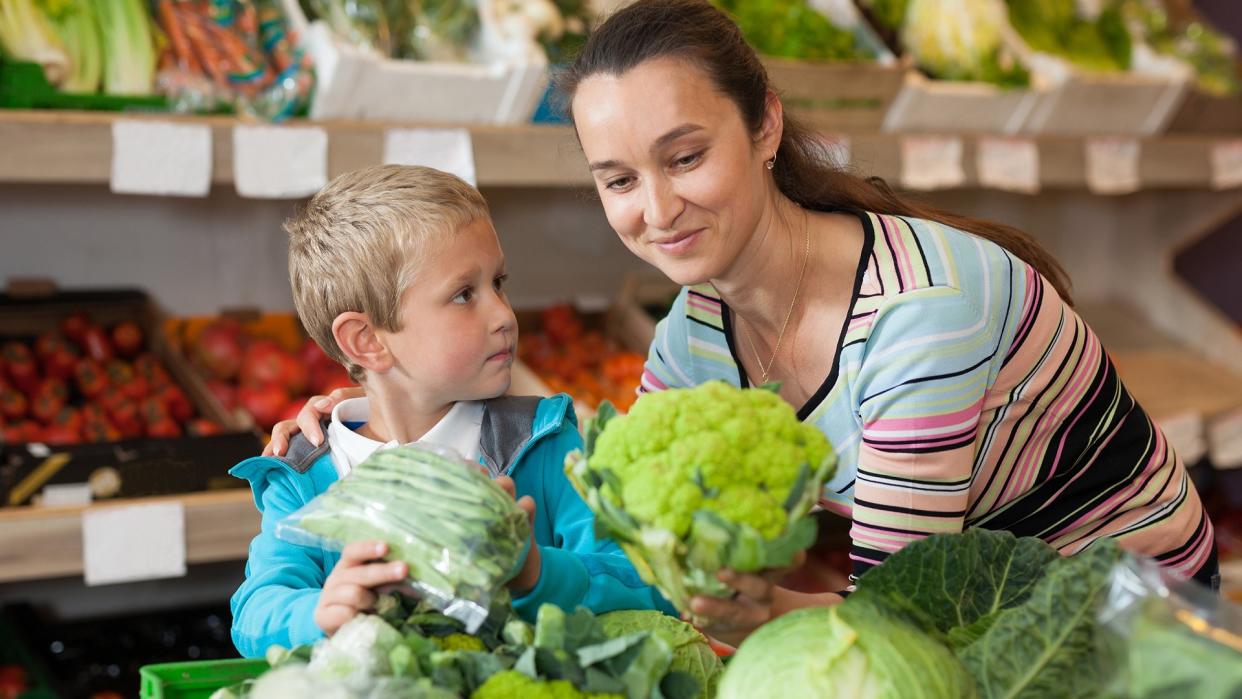8 Healthy Grocery Items Frugal People Always Buy

As you’re heading to the grocery store and listing off all the fresh foods like fruits and veggies you should add to your list (as opposed to frozen food treats like pizza rolls or ice cream), the food cost calculator can slip into overdrive. However, eating healthy foods and sticking to a budget are two things that can go hand-in-hand, despite popular belief.
For You: 3 Things You Must Do When Your Savings Reach $50,000
Discover More: The Best $20 You Can Spend at Trader Joe’s This Winter
You don’t have to sacrifice your health for the sake of your wallet, nor do you need to break the bank to eat well. Frugal people know the secret lies in choosing the right grocery items that are both nutritious and cost-effective, making them worth both your time and money.
Financially, the big picture doesn’t just include what you add to your cart; it’s about trying to make the right choices to help you edit out both food waste and impulse purchases. The next time you swipe your credit card on healthier choices like nut butter, sweet potatoes or olive oil, you should know there are still ways to do so and save money.
Here’s a rundown of eight healthy nutritious foods and grocery items that frugal people always have on their shopping lists.
Beans and Legumes
Think of these pantry staples as the mitochondria, because they are the powerhouse of nutrition and affordability. Whether you’re picking up black beans, lentils, chickpeas or kidney beans, you’re getting a fantastic source of protein, fiber and vitamins, all at a fraction of the cost of meat.
They’re versatile, too, making a great base for soups, salads and stews. Plus, buying them dry and in bulk can save you even more money. However, no matter if they are dried or canned, they have a great shelf life, so you stretch out your budget while lessening potential food waste.
Trending Now: 5 ‘Necessities’ Frugal People Don’t Buy, According to Frugal Living Expert Austin Williams
Whole Grains
There’s very rarely a nutritionist who doesn’t recommend a good amount of whole grains as part of a balanced diet. The good news is that whole grains like brown rice, quinoa, oats and whole wheat pasta should always be on your grocery list as they are healthy for both your heart and your wallet.
Not only are they better for you than other bleached or refined flour alternatives as they offer more fiber and nutrients, but they’re also budget-friendly. A large bag of brown rice can serve as the base for many meals, stretching your dollar further.
Seasonal Fruits and Vegetables
Frugal shoppers know the secret to buying produce is sticking to what’s in season as the supply is abundant and the stock is fresh.
Seasonal fruits and vegetables are not only cheaper but also at their peak flavor and nutritional value. Remember, it’s not only your car that needs regular maintenance and repairs; filling your diet and grocery cart with produce helps keep you running longer.
Think about stocking up on berries in the summer and squash in the fall. You can also save by buying in bulk and freezing what you can’t use immediately.
Frozen Produce
Speaking of freezing, don’t overlook the frozen aisle for fruits and vegetables. If you are worried you won’t go through the fresh fruits and vegetables fast enough, frozen is a great way to stretch the shelf life, as it won’t spoil quickly, reducing waste and saving money.
Frozen produce is picked and frozen at its peak, meaning it’s typically packed with nutrients. It’s often less expensive than fresh produce, especially when the fruit or vegetable is out of season.
Eggs
Eggs are a frugal shopper’s best friend as they’re an inexpensive source of high-quality protein and contain a variety of essential nutrients. Eggs can be cooked in numerous ways for any meal of the day, making them a versatile addition to your grocery list and a great way to not overextend your savings nest egg.
Whether it’s for baking or breakfast, some things are really are more frugal by the dozen.
Bulk Nuts and Seeds
Nuts and seeds can be pricey, but buying them in bulk can help you save a bundle. You may not know, but they’re a great source of protein, healthy fats and fiber.
Use them as a snack, sprinkle them on salads or add them to your morning oatmeal. Just make sure to store them properly to keep them fresh.
Canned Fish
Canned fish, like tuna and salmon, is a cost-effective way to get your omega-3 fatty acids, which are essential for heart health. They’re also packed with protein and can be used in a variety of dishes, from salads to sandwiches. Opt for fish canned in water to keep the calorie count down.
Whole Spices
Don’t underestimate the power and importance of seasoning to spice up your life. Whole spices can transform even the simplest ingredients into a delicious meal without adding calories or breaking the bank.
Better yet, buying whole spices instead of pre-ground ones will fill your food with flavor and can save you money in the long run.
More From GOBankingRates
4 Subtly Genius Moves All Wealthy People Make With Their Money
3 Signs You've 'Made It' Financially, According to Financial Influencer Genesis Hinckley
4 Unusual Ways To Make Extra Money That Actually Work
This article originally appeared on GOBankingRates.com: 8 Healthy Grocery Items Frugal People Always Buy


